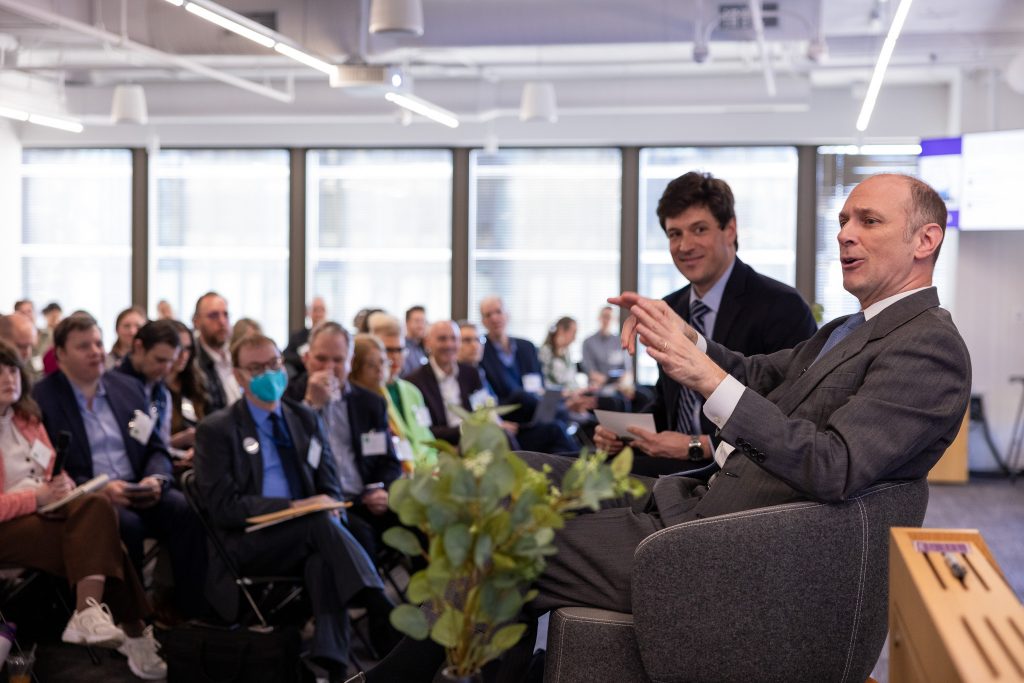Goolsbee: Inflation must pass sniff test

As a self-described “data dog,” Federal Reserve Bank of Chicago President Austan Goolsbee has done a lot of sniffing this year.
With inflation seemingly stuck roughly half a percentage point above the Fed’s 2% target, Goolsbee is firm about one thing.
There will be no moving the goalposts, he told a group of 150 business reporters and editors in Chicago on April 19.
Goolsbee was interviewed by Nick Timiraos, chief economics correspondent for the Wall Street Journal and he spoke briefly with the Business Times after the Q&A.
“We’re gonna get to 2%. That’s our started target and for credibility, we must get inflation back to 2%,” he said with the caveat that getting to 2% could happen “within a reasonable period of time.”
Goolsbee, a former professor at the University of Chicago Booth School of Business, was one of the key economic policy architects in the Obama administration.
Nominated by President Joe Biden, he’s been the Chicago Fed president since early in 2023.
His view is that 2023 was a “golden year” for the Fed in which it came close bringing inflation down to 2% without causing a deep recession. But taking the last few steps has been difficult with inflation — both the core rate and overall rate — running above the Fed’s target.
“It’s definitely more difficult in 2024,” he said. “The supply chain is not going to heal again,” he added.
If the Fed is going to achieve its goal without a deep recession, then labor force participation, productivity improvement and population growth will all have to play supporting roles.
But housing costs have been stubbornly resistant to decline, at least according to the consumer price index.
“Housing has not performed the way we thought,” Goolsbee said, adding that’s time to “stop walking and start sniffing.”
He said the Fed is looking at signs of overheating including a rise in inflation “across the developed economies.”
The fact that labor markets are coming into better balance, might be consistent with eventually getting to the Fed’s target.
In brief comments to the Business Times, Goolsbee said that productivity growth has helped bolster the California economy which has some of the highest unemployment in the nation.
He said the end of the Hollywood strike could give the state’s economy a boost and profits from a few blockbuster movies could also help narrow California’s looming budget deficit.
Goolsbee said it may not be necessary to see “blood in the streets” for the Fed to achieve its 2% target and that at current rates, Federal Funds policy is certainly restrictive.
In response to a question about fiscal spending, he said “You give us the conditions and we will deal with it.
“If productivity growth is going to be as fast as it’s been that’s going to change the way we think about the economy,” he said, adding that it could be “like the late 1990s where you had faster GDP growth without triggering inflation.”
To balance out that optimistic view is the fact delinquency rates on consumer loans are rising creating “an area of concern.”
When it comes to politics, he said “Elections are not part of the mandate.”
email: [email protected]









